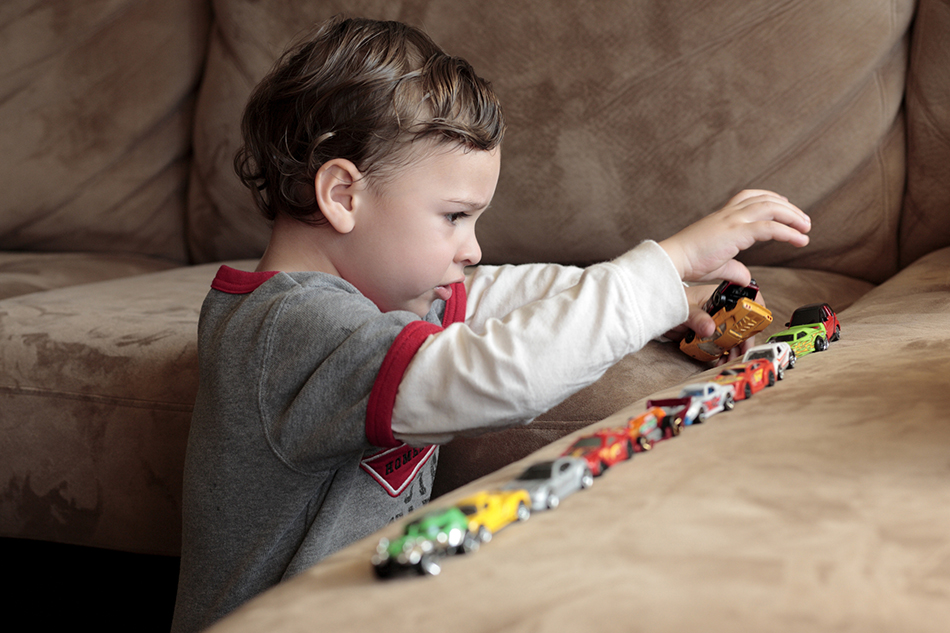- Health
- Parenting
- Safety
BLOG: Lead poisoning is still a risk to your child. Here's how to reduce it.

What is lead poisoning?
Lead is a toxic element that was commonly used in paints, water pipes and other materials until studies showed its harmful effects. Lead poisoning now has its biggest impact on families living in older houses or houses in low-income communities. Children under the age of 6 are at a higher risk because they are the most likely to put objects in their mouths. There is no way to tell immediately if your child has been exposed to lead.
How do children get lead into their bodies?
The most likely source of lead exposure is your home. If you live in a house built before 1978, the odds increase by about 24% that lead-based paint is present. The risk increases to 69% if your home was built between the years of 1940 to 1959. Homes that contain lead-based paint can create dust and chippings that your child can inhale or ingest.
Other ways that children can be exposed to lead:
• Objects imported from outside the United States that contain high lead levels including furniture, vinyl mini-blinds, jewelry and pottery.
• Coming into contact with adults who have lead dust on their clothes from work in manufacturing, construction or machinist jobs.
• Certain toys made of plastic or metal that when they are left out for prolonged periods of time in the heat or sunlight give off lead dust.
How could lead poisoning affect my child?
Elevated levels of lead can lead to visible symptoms like abdominal pain, headache, fatigue, fever, general loss of appetite, and overall changes in mood. More significant long-term health effects include developmental delays, behavioral problems, neurological deficits and speech and language delays. Lead toxicity can take months to build up in the body all while going unnoticed.
How can I protect my child from lead poisoning?
As a parent, you can take some basic precautions:
• Ask your landlord if there is any lead-based paint in your home. Lead poisoning can happen from children eating chips of peeling paint.
• Regularly clean your floors, high-touched surface areas and your child’s toys.
• Monitor small children to prevent them from putting household items in their mouths.
• Ensure your child has a diet high in iron, calcium and Vitamin C.
How can I find out if my child has lead poisoning?
If you have any suspicions, contact your child’s doctor or call your local health department. In Palm Beach County, you can call 561-837-5900.
Ashley Washington is a biological scientist with the Florida Department of Health - Palm Beach County.
You May Also Like
-
- Behavior
- Parenting
- Safety
How to boil down dangers in your kitchen, keep lid on burns
The kitchen brings friends and families together, but many hazards lurk for little ones. Here's how to keep everyone safe from burns and scalds. …
Read More -
- Parenting
- Safety
Tips on babyproofing your home
Expecting a baby? Read on to find out how best to prepare your home — and your life — for the big transition ahead. And if you’re on a tight budget, experts advise where to get aff …
Read More -
- Health
- Parenting
- Safety
How to protect your family from cancer-causing radon gas
• Radioactive radon gas is everywhere and seeps into homes. • One of five homes tested in Florida shows a radon level above concern. • The Florida Department of Health provides …
Read More
Related resources
-
- Parenting
- Safety
Safe Kids Palm Beach County
Local child safety information and assistance, including car seat installation, bike helmet fitting, poisoning prevention, TV tip-over prevention and more
561-841-3500 ext. 4011 Website Email -
- Health
- Safety
Florida Department of Health - Palm Beach County
The local health department provides medical care and oversight of public health issues in Palm Beach County.
561-514-5300 Website Email -
- Parenting
- Safety
Safe Kids Worldwide
National resources to protect children from preventable injuries
202-662-0600 Website Email
